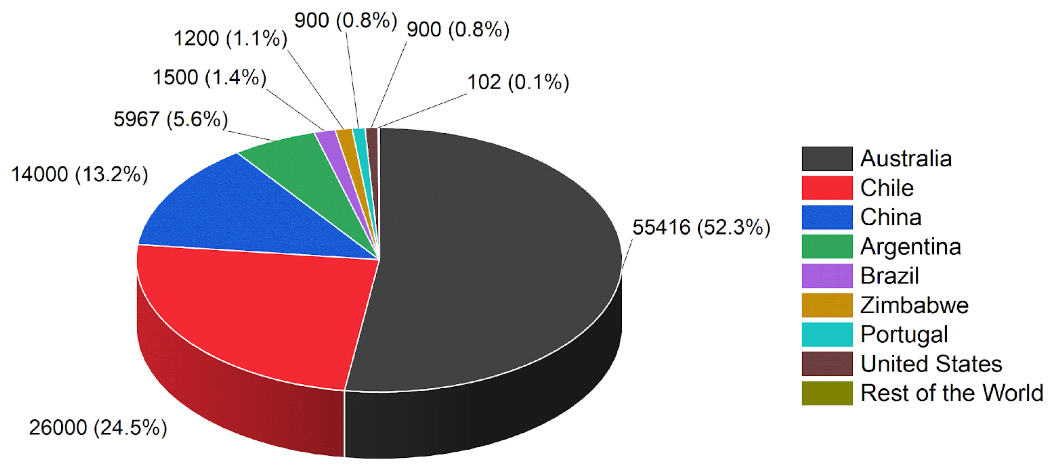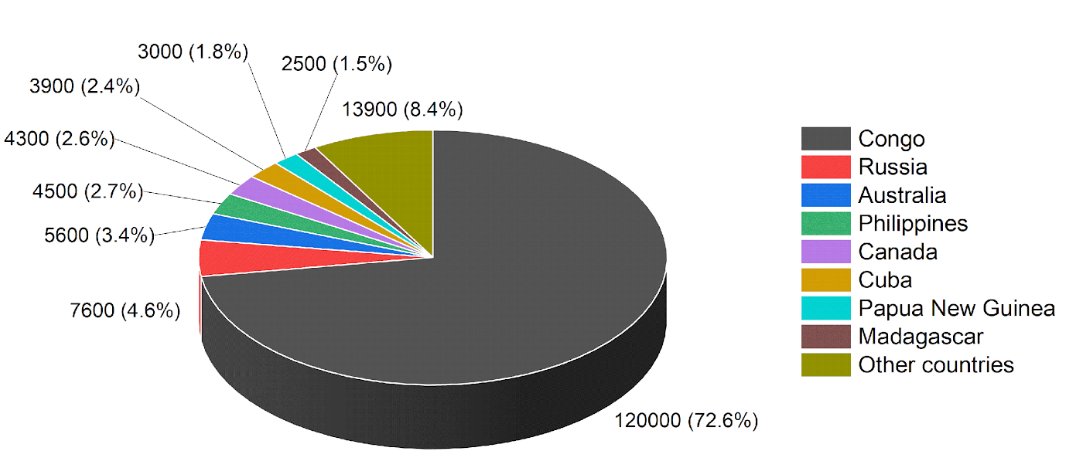The future of energy: Geopolitics and the essential minerals of the 21st century


· 6 min read
Navigating the quest for security in cobalt and lithium
At this pivotal juncture in history, the imminent menace of climate change casts an increasingly undeniable shadow on the future of our planet. It compels us to accelerate the pace of decarbonization of the global energy sector. The imperative to shift the paradigm of energy consumption has never been more pressing. Renewable energy technologies rely heavily on specific raw materials like lithium, cobalt, copper, nickel, manganese, and rare earth elements. Therefore, as the adoption of renewable energy grows, so does the demand for these critical raw materials. Even though disruptions in critical raw materials might have a small impact on energy security, they have an immense impact on the energy transition toward a cleaner energy system. This urgency underscores the importance of our discussion today.
However, as we navigate this transition, a complex reality emerges. While renewable energy resources can be found virtually in every corner of the world, the essential raw materials, crucial to the clean energy value chain, are naturally disproportionately concentrated in a select few strategic regions worldwide. This concentration, coupled with the current focus of clean energy supply chains on specific geographies, sets the stage for potential geopolitical tensions. These tensions, exacerbated by the ongoing state of current and latent international conflicts, pose significant risks to the energy transition.
Russia's ongoing and unrelenting invasion of Ukraine persists without any discernible signs of abatement, with diplomatic efforts toward peace remaining elusive.
In the volatile Middle East, the unresolved conflict between Israel and Hamas continues persistently, devoid of any visible pathway to resolution. Moreover, the conflict risks escalation with Iran attacking Israel and US forces in the region.
China's rise as a global superpower is altering the established world dynamics designed by the United States in the aftermath of the Second World War.
Solving these complex issues would require a combination of the visionary and the tactical, as well as a gradual approach and sustained effort to find a consensus. Considering the above premises, this article will analyse and propose measures that can be considered to increase the security of the supply of two crucial elements, lithium, and cobalt.
Cobalt and lithium are crucial to energy transition and set the fight against climate change, as they are ubiquitous in all electronics and essential for developing telecommunications, electrical vehicle batteries, and electrolysers. Nevertheless, its reserves and processing facilities are highly concentrated, and the global demand is steadily increasing due to its indispensable role.
Figure 1 depicts the distribution of the largest lithium producers worldwide. A striking aspect is that approximately 90% of this production originated from just three countries. Australia is the largest producer, contributing 52% of the world's lithium output, followed by Chile and China. China, the third-largest producer, plays a pivotal role in the lithium supply chain. In addition to advancing domestic mining operations, Chinese firms have strategically acquired lithium assets in nations like Chile, Canada, and Australia over the past decade. Furthermore, China hosts a substantial 60% share of the world's lithium refining capacity for batteries. This dominance in refining further solidifies China's influence in the global lithium market, emphasizing its pivotal role in the supply chain of crucial components for the burgeoning electric vehicle and renewable energy sectors.

Figure 1: World largest lithium producers, 2021. Unit: Tonnes.
In Figure 2, it is depicted the most significant mining countries for cobalt in 2021. Congo accounts for 72.6% of the world's cobalt mine production, followed by Russia (4.6 %) and Australia (3.4 %). Despite not appearing in the top 10 producers, China is the primary producer of refined cobalt, primarily sourced from partially refined cobalt imports from Congo. Remarkably, China also leads in cobalt consumption, with over 80% of its usage attributed to electrical battery systems.

Figure 2: World largest Cobalt producers, 2021. Unit: Tonnes
The data presented underscores a critical vulnerability within the global energy infrastructure: any disruption in the supply chain from crucial producing regions poses a significant risk. Such disruptions could precipitate economic instability, with potential consequences including price fluctuations, interruptions in electric vehicle production, and electrical battery development. This could lead to a backlash against significant producers and refining nations, potentially slowing the transition to cleaner energy sources due to infrastructure limitations. The implications of these disruptions are not just economic but also environmental, as they could hinder the progress of the energy transition and the fight against climate change.
How can the energy transition be maintained amid such a maelstrom of geopolitical tensions and a high concentration of critical elements in very specific regions of the globe, whilst ensuring the economic transition is balanced between energy supply, financial stability, and environmental stability?
Addressing this energy trilemma requires substantial investment in research and development to ensure a secure supply of energy amidst globalization, diversification of supply chains and the abatement of trade barriers for practical international cooperation.
It is imperative to maintain investments in conventional energy storage solutions, such as hydro pump storage, to avoid an overreliance on electricity storage methods. Additionally, continued research and development efforts are essential for identifying and implementing new materials for energy storage, alongside the exploration of recycling options.
Diversifying supply chains and strengthening domestic capabilities are crucial steps to secure strategic raw materials in case of disruptions. However, it's equally important for countries with proven reserves, such as Portugal, to prioritize sustainable mining practices. By doing so, these nations can contribute to diversifying the global production of raw minerals, reducing reliance on a few concentrated sources, and promoting greater resilience in the event of potential disruptions. This commitment to sustainability offers a beacon of hope in the face of geopolitical tensions.
Lastly, globalization must persist as the driving force behind economic development and decarbonization efforts. The accessibility of cost-effective solar PV panels and renewable infrastructure should be seen as a vital global asset. Removing trade barriers to climate technology is imperative to expedite the process of decarbonization.
Nevertheless, we must understand that the energy transition is affected by the difference between the global north and the global south, and that the best practices and strategic investments should be addressed in order to push for a sustainable energy future, leaving no one behind. If we cannot achieve all of these elements, we will not be able to achieve either. The road of energy transition may appear complex and challenging, but progress requires both the vision and courage to pursue this journey.
illuminem Voices is a democratic space presenting the thoughts and opinions of leading Sustainability & Energy writers, their opinions do not necessarily represent those of illuminem.
illuminem briefings

Battery Tech · Green Tech
Yury Erofeev

Battery Tech · Mobility Tech
illuminem briefings

Battery Tech · Public Governance
Rolling Out

Battery Tech · Green Tech
Interesting Engineering

Power Grid · Battery
CNBC

Battery Tech · AI